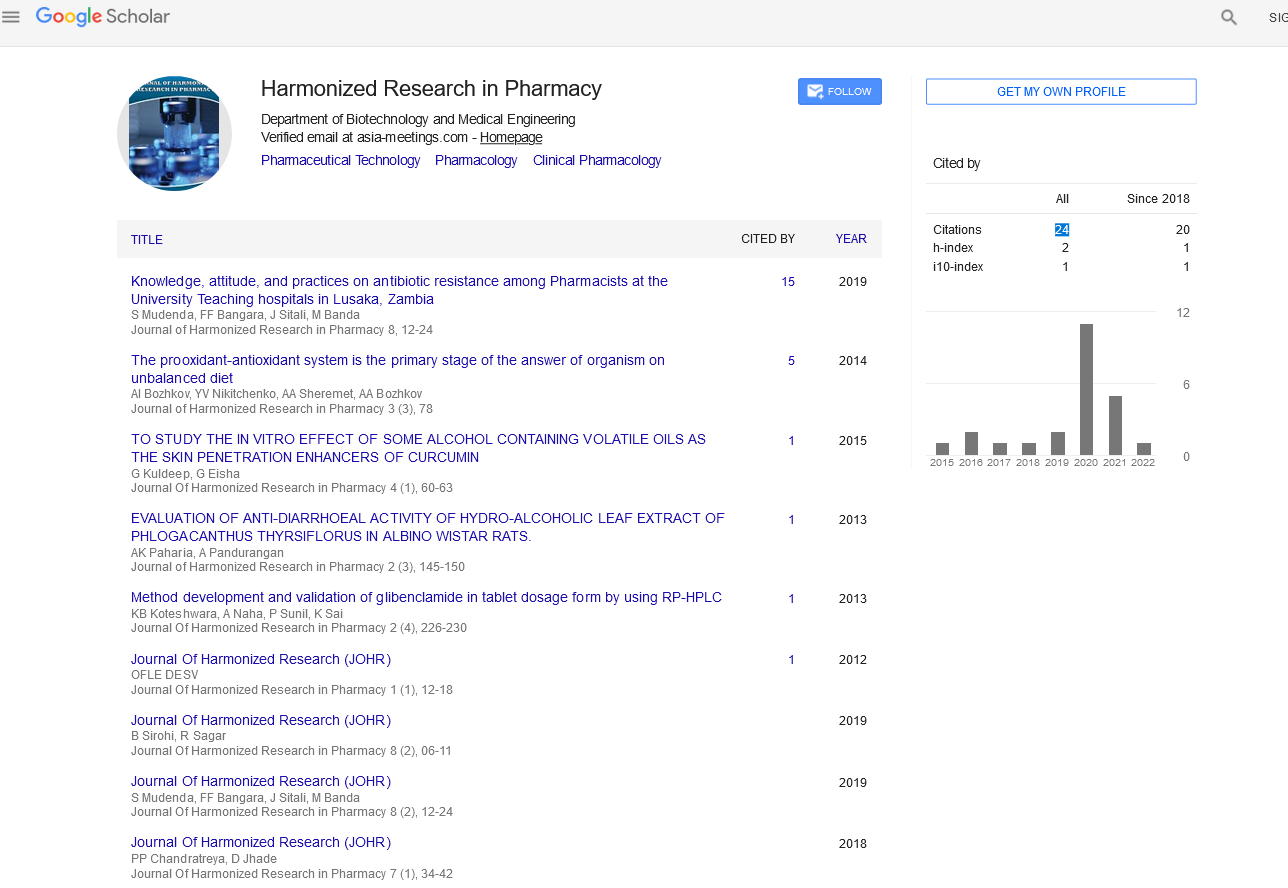ROLE OF ANTI-INFLAMMATORY AGENTS AS A TREATMENT OF MULTIPLE SCLEROSIS
Abstract
Author(s): Anamika Saxena, Ashok Dashora Virendra Singh and A.K.Akhtar
Multiple sclerosis (MS) is a neurodegenerative disease in which the immune system recognizes proteins of the myelin sheath as antigenic, thus initiating an inflammatory reaction in the central nervous system. It is characterized by intermittent or chronic damage to the myelin sheaths (demyelination), focal inflammation and axonal degeneration Inflammation has always been as the pathophysiology of multiple sclerosis. The present pharmacological treatment of MS administration of immunomodulatory and anti-inflammatory drugs, which are only palliative and slow progress of the disease. Infection, trauma or autoimmune inflammation in experimental allergic multiple sclerosis and they are competent presenters of antigen and interact with T cells recruited to the inflamed CNS. Symptoms of inflammation in general and more specifically in multiple sclerosis, a demyelinating, autoimmune disease characterized by inflammation of the central nervous system (CNS). Inflammation has always been thought of as detrimental in the pathophysiology of multiple sclerosis. However, emerging genetic data, magnetic-resonance-imaging studies, and immunopathological evidence challenge this simplistic view. Inflammatory cells normally occurs via emigration or insitu apoptosis. Characterization of the inflammatory infiltrates present in MS brain and spinal cord tissue. Studies in of myelin proteins can become immune system targets resulting in demyelination, and these models have also served to define multiple immunological mechanisms of disease. Primary inflammatory cytokines and chemokines with a proretention activity have been found in active MS. Plaquesfocal inflammation and axonal degeneration. During the early relapsing/remitting stages of MS, myelin can regenerate, but as the disease progresses the remyelination of axons becomes insufficient, leading to impaired axon conduction, neurodegeneration and the worsening of symptoms. The rationale to influence immunological activity in MS is to suppress myelin and axonal damage and thus to prevent clinicaldisability.

Google Scholar citation report
Citations : 147
Journal of Harmonized Research in Pharmacy received 147 citations as per google scholar report









